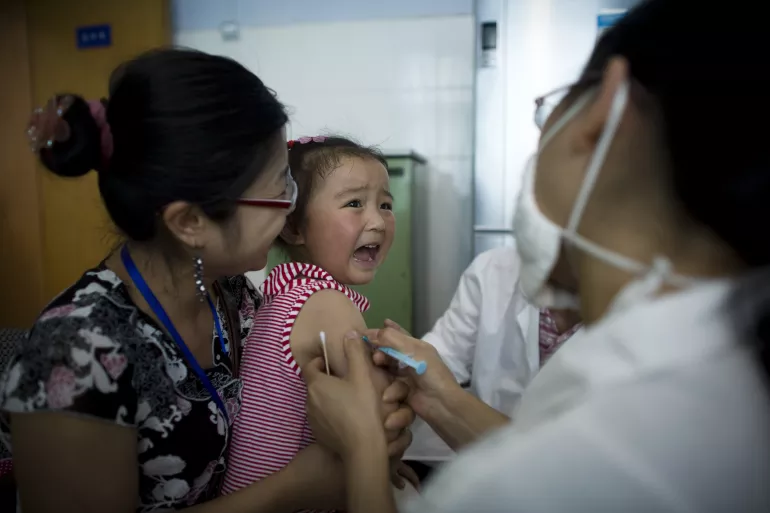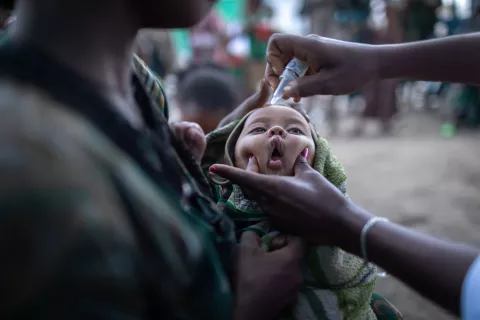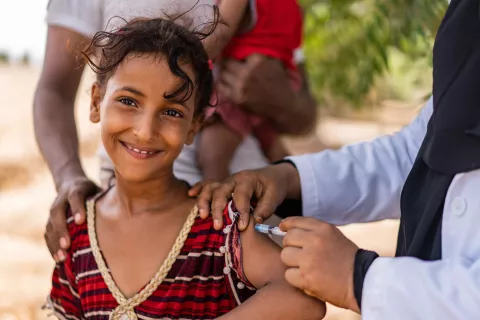UNICEF congratulates China on success in protecting children from hepatitis B

- Available in:
- 中文
- English
Beijing, 24 July 2015 – On the eve of the World Hepatitis Day marked on the 28 July, UNICEF congratulates the Government of China on its dramatic success in hepatitis B prevention, which protects babies from being infected with the disease. Meanwhile, it urges the Government to continue to protect children from the viral infection through maintaining a strong public national immunization programme.
New data released by China's health authority reveals that the dramatic scale up of vaccination coverage and prevention of the transmission of hepatitis B from mother to child have helped to protect millions of children from suffering from this life long and chronic disease.
Hepatitis B, which is a major global health problem, can lead to acute illness or chronic disease, which puts people at risk of developing life-threatening liver cancer or cirrhosis of the liver.
According to World Health Organization, children less than six years of age who become infected with the hepatitis B virus are the most likely to develop chronic infections.* All infants should receive hepatitis B vaccination within 24 hours after birth, followed by two more doses during infancy.
The third nationwide survey on hepatitis B serology released this week showed that only 0.32 per cent of children under 5 years of age are infected with hepatitis B, a two third decline from 0.96 per cent in 2006. This means China has not only achieved the interim milestone of reducing hepatitis B surface antigen (HBsAg) to 2% in five year old children by 2012, but also the final regional goal for the Western Pacific of reducing HBsAg to below 1%. The decline in the older age groups is also impressive.
"Since in Asia most of the transmission of hepatitis B virus happens from a mother, who carries the virus to her newborn, or at a young age, this is an extraordinary success. The results illustrate the critical importance of investing in a strong public vaccination program," said Dr. Robert Scherpbier, Chief of Health, Nutrition and WASH at UNICEF China. "Today, we can celebrate that millions of children in China are healthy and have avoided living with this disease."
* World Health Organization, Fact sheet N°204, 2015
Media contacts
About UNICEF
UNICEF works in some of the world's toughest places, to reach the world's most disadvantaged children. Across 190 countries and territories, we work for every child, everywhere, to build a better world for everyone. For more information about UNICEF and its work for children visit www.unicef.org.
| Visit UNICEF China website: www.unicef.cn Follow us on Sina Weibo: http://weibo.com/unicefchina Tencent Weibo: http://t.qq.com/unicef Wechat: unicefchina |



